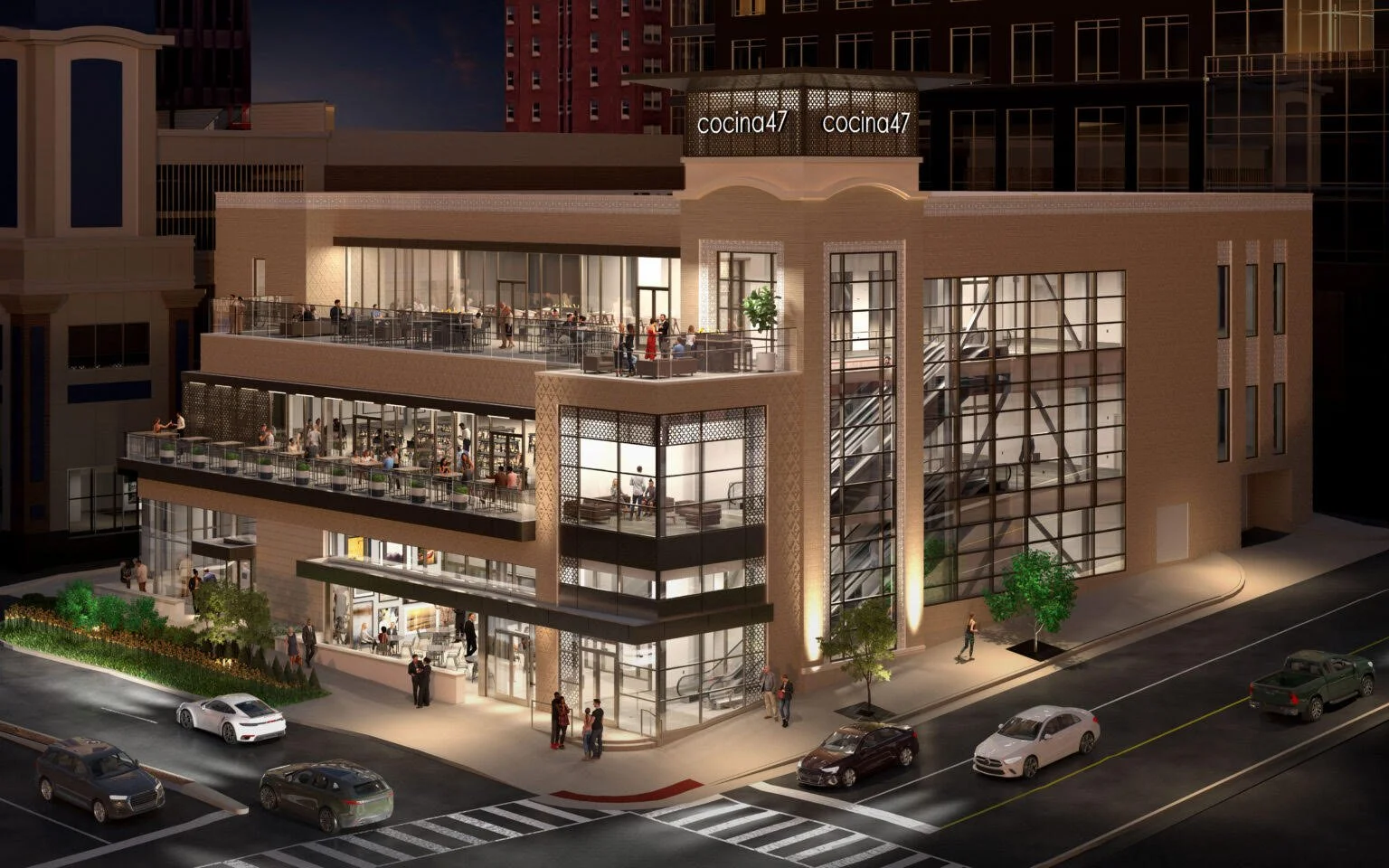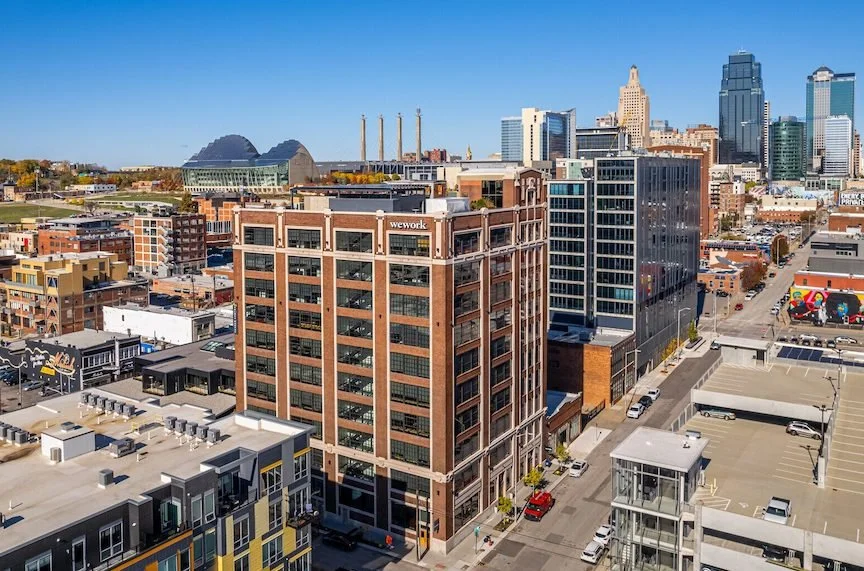In 2002, only 60,000 employees worked in Downtown Kansas City, Missouri.
“They were fleeing as quickly as they could, and I think the access on Main Street was one way south to Johnson County. No one wanted to be here. No one wanted to live here. It was really a very difficult kind of situation,” said Bill Dietrich, president and CEO of the Downtown Council of Kansas City.
Dietrich was the featured speaker at the monthly luncheon hosted by the KC Downtowners last week.
Since 2002, Downtown has seen $11 billion in investment. It now boasts 124,000 employees and 32,000 residents.
“We’re the fastest-growing neighborhood. If we were a city, we’d be the 11th largest in the metroplex. That’s kind of cool. We’re also the fastest-growing neighborhood community. We’re adding more residents,” said Dietrich.
The area that Dietrich said he defines as “Greater Downtown” is approximately 2.5-mile square blocks and includes the Missouri River to 31st Street, 18th and Vine to State Line Road.
Dietrich shared publicly for the first time some new independent research data about Downtown’s post-COVID recovery. Like all major communities across the country, Kansas City suffered some economic losses as a result of the pandemic which struck in 2020. But, recovery has been healthy.
In 2019, Downtown had 5.3 million unique visitors. In 2023, Downtown had 6 million unique visitors, which equates to 133 percent of the pre-COVID levels. In addition, Downtown has recovered 95 percent of the number of visits (the visit frequency of unique visitors) from 2019. Kansas City’s recovery rate is surpassed by only Nashville and San Jose, Dietrich said.
“We need to build on that trend. That’s why these events are so important. Not only the FIFA World Cup, which we all know is coming in 2026, but we now have the Big 12 women’s and men’s for the next seven years. Those are huge plusses for our community, and they feed off of each other. The more of these you do, the more you get,” he said.
The employee base has increased by 11 percent since 2020. Thirty-five percent of all Kansas City, Missouri jobs are Downtown. Dietrich said that the employment base is important to support Downtown restaurants and cultural venues which helps spur the economy.
Dietrich said companies are drawn to Downtown because of its exceptional talent pool, vibrant environment and growing residential options. Downtown has 26.5 million SF of office space, making it the largest business district in the region.
According to Dietrich, approximately 76 percent of the Downtown pre-COVID employees are back in their offices at least three days a week, placing Kansas City fourth in the nation for employee recovery.
Bill Dietrich, president and CEO of Downtown Council of Kansas City presented to KC Downtowners earlier this month. Photo Credit: Marcia Charney | MWM KC
Data shows that where employees reside in the metro drives their use of Downtown. Dietrich said that employees who live within two miles of Downtown are 100 percent back in the office. This percentage drops to 80 percent for employees who live two to five miles away and to 70 percent for employees five to 10 miles away. Farther than 10 miles, the percentage drops even lower.
“What does that tell you about what you should be focusing on as a city as policymakers and at City Hall? You should be focusing on an economic development strategy for the city, in my opinion, which prioritizes and really focuses on multi-family residential in Downtown. . . . You can see it borne out in the data. The closer you are to the center, the more likely you are to go to your office, buy that lunch and go to that theater afterward, go to a game or a concert at T-Mobile Center or the Kauffman Center for the Performing Arts,” he said.
Although the number of Downtown residents has climbed, Dietrich said there is a need for more residential inventory of all types, not just luxury projects. He said the residential population is projected to be 43,000 by 2035.
“Residents are everything. Residents bring vitality. They demand things. They want streetcars. They want more cultural amenities. They want better jobs. And, it makes a huge difference to have them,” he said.
The demographics of Downtown residents show that 50 percent are men and 50 percent are women, and 51 percent are not majority culture.
So we’re a very diverse downtown. And that’s in pockets and areas that are less diverse and more diverse areas. That’s why we say Downtown is a collection of 22 unique neighborhoods, each with its heritage, history, value and culture,” said Dietrich.
Dietrich said there is $3.5 billion of Downtown investment currently underway, including the redevelopment underway by SomaraRoad Inc. in the West Bottoms, mixed-use development at the riverfront, the UMKC Health Sciences Building, streetcar expansion, Barney Allis Plaza and the Buck O’Neil Bridge. There also is the $225 million South Loop project, a four-block park on 5.5 acres which will be built over I-670 and will reconnect Crossroads to the Central Business District. To date, $125 million of the project’s cost has been raised, and Dietrich said construction should begin next spring.
“Downtown baseball is still a conversation we need to have. It’s the right decision to make. It would add three million more visitors to our marketplace, and absolutely you would see $2 to $3 billion of investment around it,” Dietrich said.
Other needs for Downtown include innovation districts, east-west transit connections and more parks, trees and open spaces.
Dietrich recognized that Downtown crime is escalating, and public safety is a huge issue.
“We’re seeing escalations in crime on property or person, and we are mobilizing our energy and our forces. It is a top priority for us to change that trend,” he said.
Dietrich cautioned that Kansas City must work to retain its progress and avoid what happened in downtown St. Louis, which has beautiful monumental structures and roads, but is empty.
“It’s very affordable Downtown. It’s very diverse Downtown. It is a very welcoming Downtown. None of those are a given. We all had to work really hard to make that happen. And, we can’t take our eye off the prize,” Dietrich said.
The header image shows the completed, under development and proposed mixed-use and multifamily Light Towers within the Kansas City Power & Light District’s nine-city block retail, entertainment, office and residential district, located in the heart of Downtown Kansas City directly adjacent to the T-Mobile Center. Image courtesy of The Cordish Companies.






